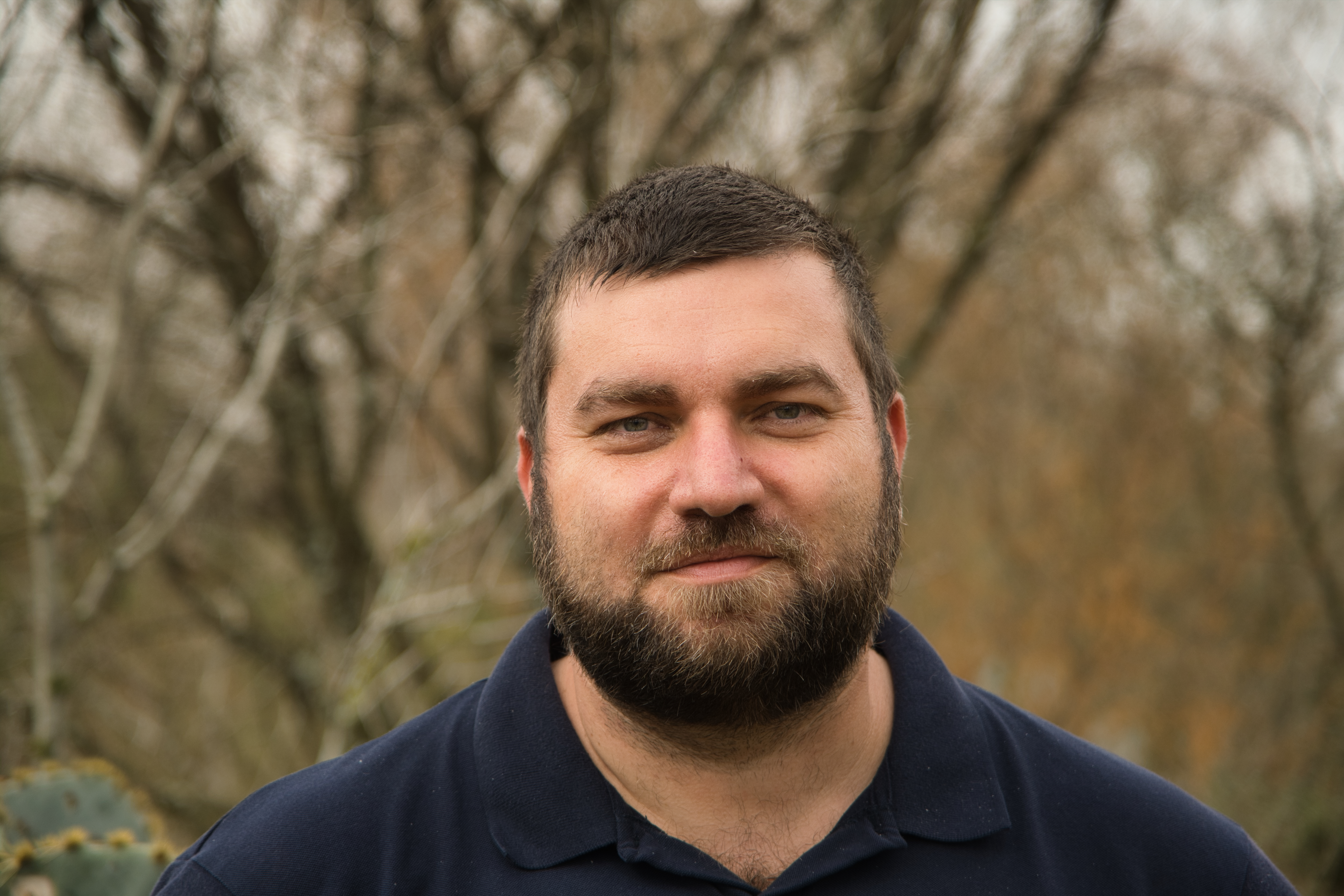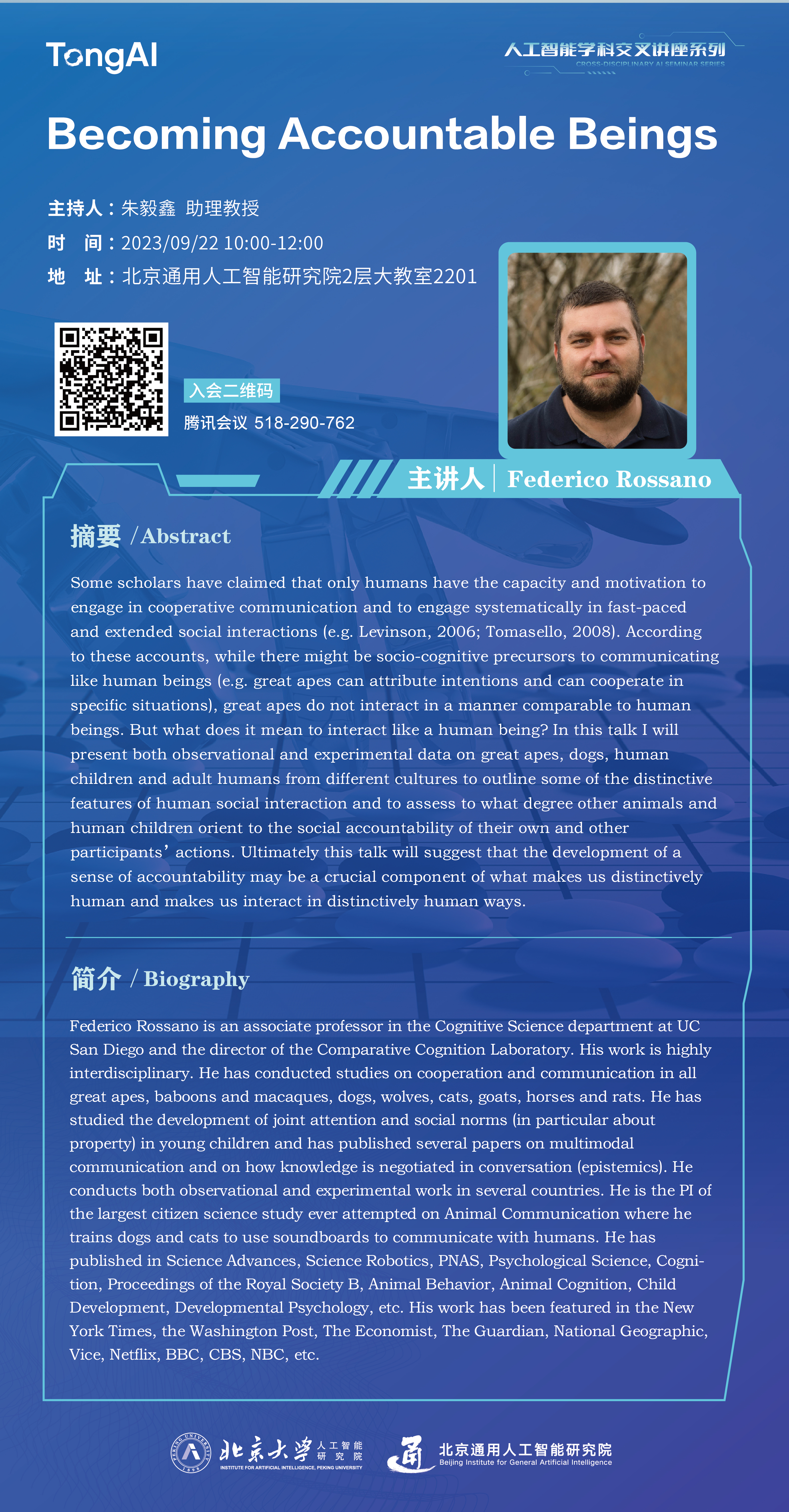
Bio
Federico Rossano is an associate professor in the Cognitive Science department at UC San Diego and the director of the Comparative Cognition Laboratory. His work is highly interdisciplinary. He has conducted studies on cooperation and communication in all great apes, baboons and macaques, dogs, wolves, cats, goats, horses and rats. He has studied the development of joint attention and social norms (in particular about property) in young children and has published several papers on multimodal communication and on how knowledge is negotiated in conversation (epistemics). He conducts both observational and experimental work in several countries. He is the PI of the largest citizen science study ever attempted on Animal Communication where he trains dogs and cats to use soundboards to communicate with humans. He has published in Science Advances, Science Robotics, PNAS, Psychological Science, Cognition, Proceedings of the Royal Society B, Animal Behavior, Animal Cognition, Child Development, Developmental Psychology, etc. His work has been featured in the New York Times, the Washington Post, The Economist, The Guardian, National Geographic, Vice, Netflix, BBC, CBS, NBC, etc.
Title
Becoming Accountable Beings
Abstract
Some scholars have claimed that only humans have the capacity and motivation to engage in cooperative communication and to engage systematically in fast-paced and extended social interactions (e.g. Levinson, 2006; Tomasello, 2008). According to these accounts, while there might be socio-cognitive precursors to communicating like human beings (e.g. great apes can attribute intentions and can cooperate in specific situations), great apes do not interact in a manner comparable to human beings. But what does it mean to interact like a human being? In this talk I will present both observational and experimental data on great apes, dogs, human children and adult humans from different cultures to outline some of the distinctive features of human social interaction and to assess to what degree other animals and human children orient to the social accountability of their own and other participants’ actions. Ultimately this talk will suggest that the development of a sense of accountability may be a crucial component of what makes us distinctively human and makes us interact in distinctively human ways.
Replay (需要科学上网和观看密码)
Poster
